George Salis: Your latest book is Burma Sahib, a novel about a young Eric Blair (aka George Orwell) in India. What attracted you to this part of Blair’s life?
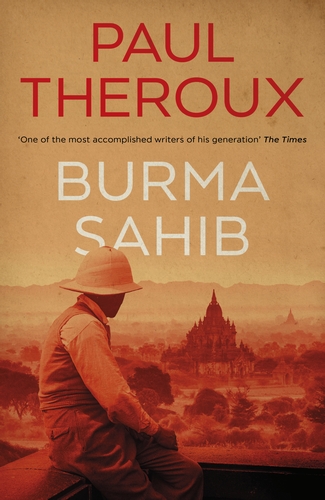
Paul Theroux: A line in Orwell’s Burmese Days goes this way: “There’s a short period in everyone’s life when his character is fixed forever.” Although Blair (Orwell’s real name) does not appear in that book, nor does anyone resembling him, it struck me that Burma was that period for him, his five years as a policeman. Imagine the culture shock: a schoolboy at Eton one year, and the next year a colonial policeman (aged 19) in the Raj. Afterwards he spent the rest of his life atoning—at first becoming a dishwasher in Paris. I might also add that I could relate somewhat, having started my working life as a teacher in the British territory of Nyasaland—later Malawi.
GS: I’m now thinking of Christopher Hitchens’ book, Why Orwell Matters. Overall, why does Orwell matter to you?
PT: He matters to me in ways greatly different from Hitchens and many others. Orwell was full of contradictions—believed in 1943 that India was not ready for independence, found Stalin satanic but regarded Hitler as a silly mythomaniac. He could be puritanical but was also a dedicated womanizer in an open marriage. Has a love-hate with Kipling, was violently anti-Catholic—and so forth. I like his paradoxes. He was not the St George of Hitchens’ portrait—Orwell would have despised Hitchens for his advocating the Iraq War and, given Hitchens’ years as gay, might have described him (as he described Auden) as a member of “the Pansy Left.”
GS: Do you agree with Orwell’s insistence that all art is propaganda? If so, what has been the overarching message of your oeuvre?
PT: I do not believe that all art is propaganda. Is Madame Bovary propaganda? Is Hamlet? Is Botticelli’s Birth of Venus? Is Francis Bacon’s Three Studies for Figures at the Base of a Crucifixion? But—yes—most of Orwell’s writing is propaganda. I don’t think I have an “overarching message” or any message but if there is a theme in my work it is that of a man out of his element, trying to solve problems and survive—most of my books explore this subject, and you could say that all good travel books come under this heading too—a solitary traveler prevailing over hostile circumstances.
GS: To what degree is traveling an antidote to ignorance versus something that confirms one’s prejudices?
PT: The great thing about travel is that it removes you from the comforts of home—and the prejudices and received wisdom and oppression of home. Families can be hell (see my novel Mother Land), and while travel can be—should be—difficult, it is full of enlightenments.
GS: I think the notion of “cultural appropriation” is, on the whole, ridiculous because cultures are made from cultures are made from cultures, much like books. What do you think of cultural appropriation and the current trend of boycotting it? For instance, it seems that some university students see no difference between a racist act of Black face and a Friday Taco Night.
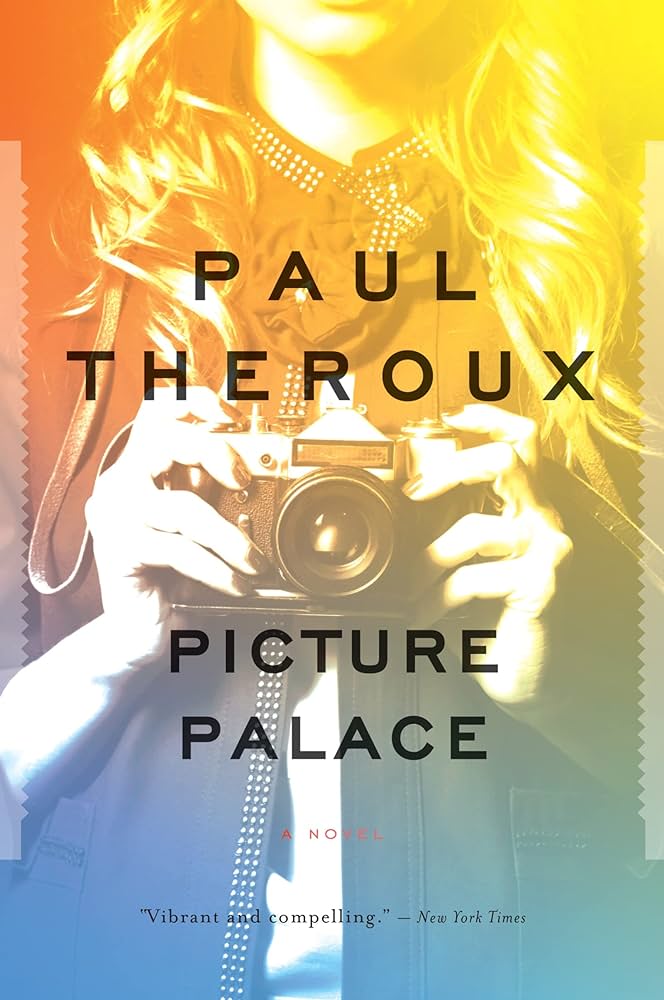
PT: I agree that cultural appropriation is just another example of a class of people asserting their identity and creating an exclusion zone—in two words, utter bullshit. A novel I published some years ago, Picture Palace, is narrated by an elderly (and celebrated) woman photographer. I still like the book. No man today would attempt such a book, I’m sorry to say. I’m glad I wrote it. I am appalled by today’s sensitivities—how easily people take offense. It impels me to be offensive, or at least to ignore the shrinking violets. But I lived through the “don’t use the word fuck” culture so nothing is surprising to me, but any sentence that starts with “Don’t” is a provocation to me.
GS: What is a place you’ve always wanted to visit but haven’t had the chance to?
PT: Many, including Greenland and the Highlands of New Guinea, but especially Central Africa—Malawi, which I first lived in more than sixty years ago—when it was first Nyasaland. I have asked many magazines and newspapers to send me. I knew it as a newly independent country full of hope. It’s now reputedly an overpopulated and horribly governed nightmare republic. But I still speak the national language (Chichewa) and would like to see it—I’ll probably do it on my own dime.
GS: Your novel, The Mosquito Coast, was first adapted into a film in 1986 with Harrison Ford in a starring role. It was recently adapted into a TV series featuring Justin Theroux. Could you reflect on these adaptions and how they inform each other and the source material? What is your stance on the book-to-film adaption process in general?
PT: Movies and TV adaptations are great for sales and to help with the cash flow. They do not compare in the slightest with the satisfactions of a good book. I liked the versions of The Mosquito Coast because each was different from the other, but—hey—they were also different from my book in many ways. I prefer my book.
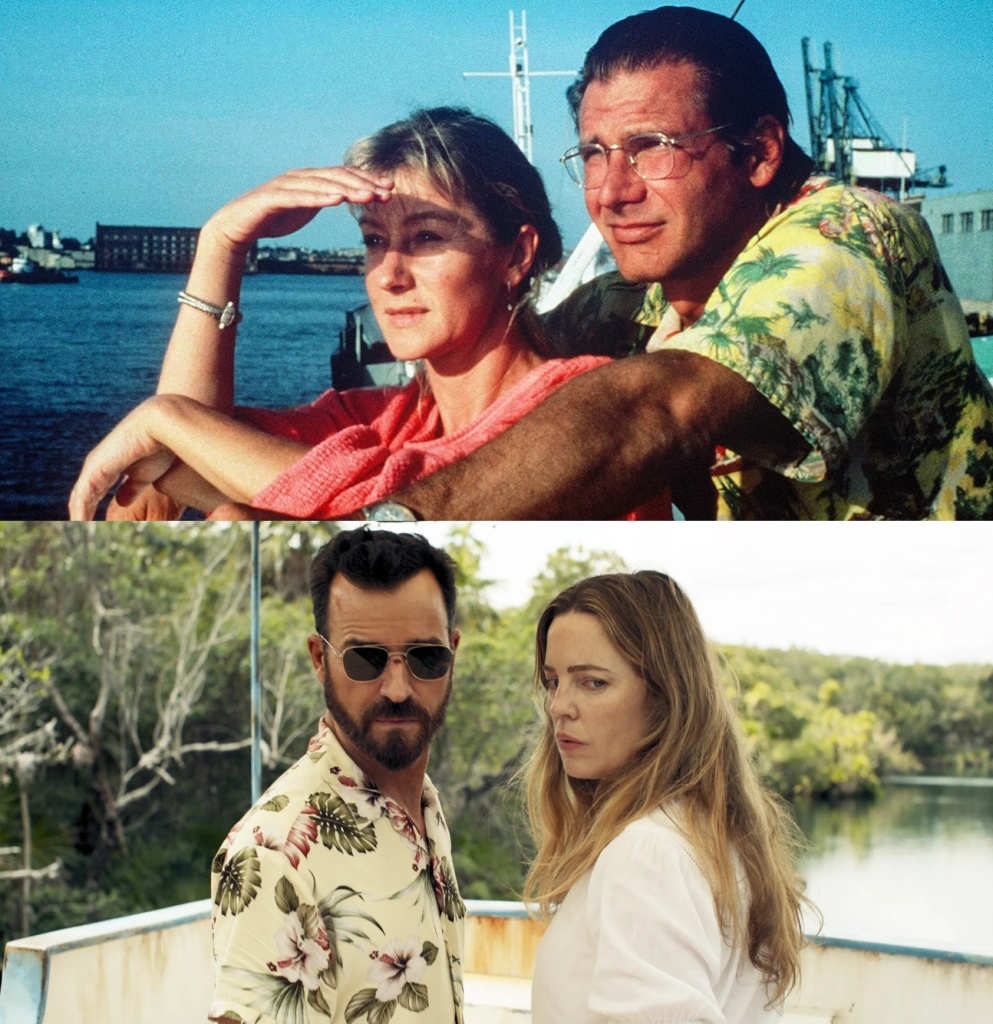
GS: I have to mention it because it’s one of my favorite shows of all time: Did you see Justin Theroux in The Leftovers? If so, what did you think of the show?
PT: I saw the first two seasons and thought it was very good, but I did not quite grasp “The Rapture.” Justin was excellent and so were the others, and yet it didn’t hold me in the way the five seasons of Gomorrah held me, or The Sopranos or Breaking Bad. And I must say some of The Leftovers looked cobbled together—lots of people shouting suggestions in The Writers’ Room.
GS: What book of yours would you like to be adapted into a film or TV series? Who do you envision playing the lead?
PT: At the moment there’s a lot of interest in my new novel Burma Sahib as a film or TV series, which if it were made would please me a lot because it would be filmed in India or Burma, and settings like that (heat and dust, the Raj, the despotism of colonialism) are great visually and viscerally. But the actor playing the young George Orwell—I don’t know. He has to be around 20 and six foot two and an Etonian. Ask a casting director.
GS: You’ve mentioned on Charlie Rose that critics are like eunuchs in a harem. They see others doing the deed and wish they could do it themselves, making them jaded. It has been said that novelists make the best critics. Do you agree with this sentiment? And I’m also wondering if there are any critics, in particular, whom you admire or at least appreciate.
PT: In the short run, criticism seems to have merit; in the end, criticism is useless—a good book has a long life in spite of anything said about it. Critics at the time mocked Moby-Dick and many other masterpieces. I say: pay no attention, read the book. I used to forbid my literature students at the University of Singapore from reading any criticism at all. It was actually department policy (my department head was the distinguished English writer D. J. Enright). “Just read the text and respond.” Probably not a popular view in English departments now, but I must say that I have a low opinion of English departments in these days of the belief in “curriculum-based trauma”—silly fuckers.
GS: You’ve written 30 novels and around 20 books of nonfiction, not to mention seven collections of short fiction. Stephen King once defended his prolific back catalog by citing Joyce Carol Oates and Philip Roth. Have you ever felt a need to defend the quantity of your output? What’s the secret to your impressive productivity?
PT: No secret. I just turned 83 and I believe Joyce is even older. You keep at it, try to stay healthy, nothing else gives an equal amount of pleasure or stimulation, and you need to remind yourself that George Simenon wrote even more books than the writers you mention. And consider: Orwell died at 46, Fitzgerald even younger, Hemingway and Conrad and Faulkner in their sixties. They are geniuses but speaking strictly of years, I have decades on them.
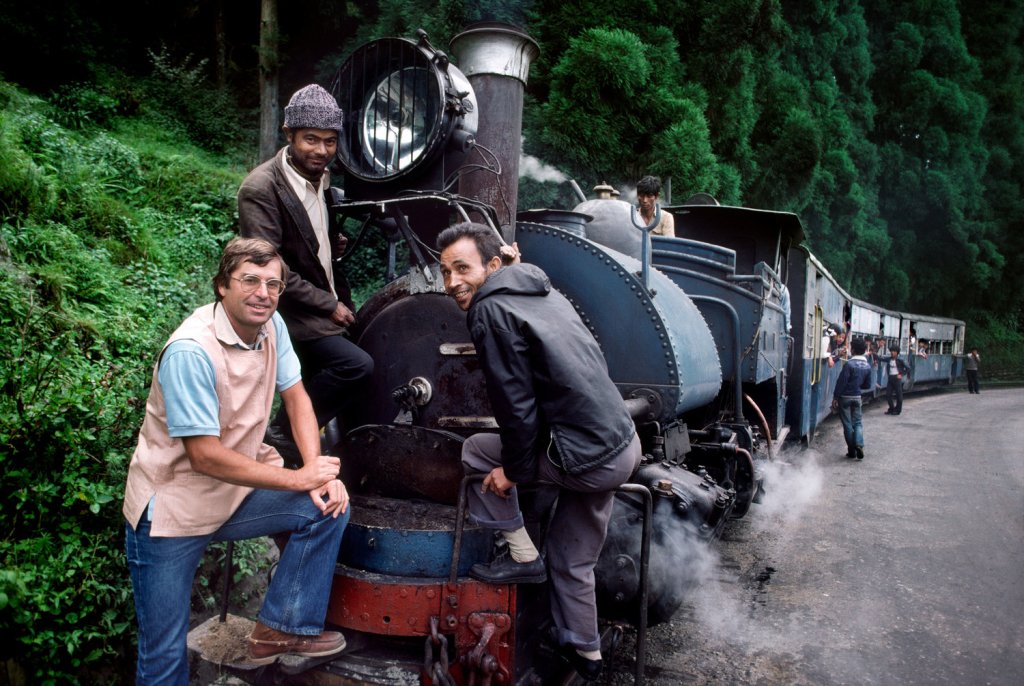
GS: What novel do you think deserves more readers? Why?
PT: I love Madame Bovary. It has tons of admirers, of course, but needs more, as all great novels do. A vastly underrated or overlooked writer is the English novelist and short story writer Elizabeth Taylor—maybe it’s her name. I think she’s wonderful.
GS: I recently appeared as a guest on the Anthony Burgess Foundation’s 99 Novels Podcast to discuss Alexander Theroux’s Darconville’s Cat. I often get asked why the novel has been out of print for 30 years. I’m curious if you have an opinion on this. Also, do you have some thoughts on the novel in general?
PT: Darconville’s Cat is a wonderful novel. In many ways, it received the same bewildered attention as The Recognitions. Yet it has many well-wishers and readers. I think it was poorly published and has not been supported by the reprinters. It should reappear with an informed introduction—you might do it.
As you know, publishing became a big business some years ago—it stopped being the enthusiasm of enterprising book-lovers, like the one-man publishers whose names were on the firm (Scribner, Hamish Hamilton, Andre Deutsch, Victor Gollancz) and became corporate. Darconville would never be the darling of a corporate entity, but if it were in print would always find readers. It’s a complex novel, brilliant and challenging. It ought to have had great reviews and won prizes, but that didn’t happen. Burgess loved it, but as you know many of Burgess’ books were dismissed for being too wordy or rarified or intellectual. It was the Clockwork Orange movie that raised his profile, I think, and helped his other books. I love his Enderby novels and Nothing Like the Sun and I really admired him as a man—a generous soul and a hard worker. I first met him in Singapore in 1969 or 70, and stayed friends.
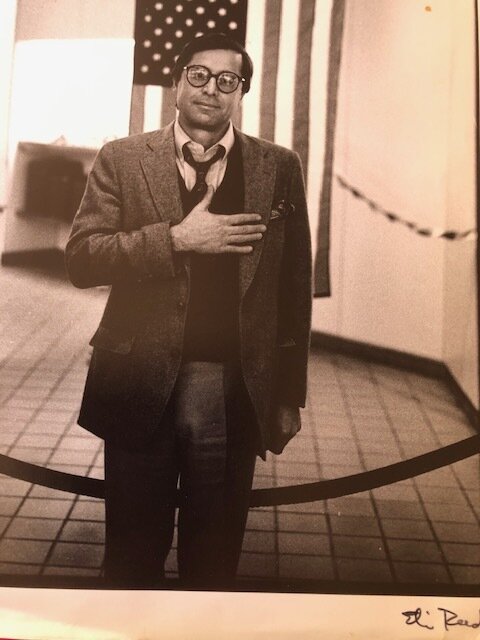
GS: In Charles Ruas’ Conversations With American Writers (1985), you said, “Every time I come back to the States, I see what possibilities there are. I have noticed how much optimism there is here, even in adversity, as opposed to the sense of demoralization in Western Europe.” How has your perception changed since then, or do you feel it has remained largely the same?
PT: I think pretty much the same, although we are living through a dire period now of Trumpism. But there has always been a violent, racist, uncompromising tendency in American life—look at what Pap says to Huck in Huckleberry Finn—some Americans are still expressing such vile sentiments. But thankfully the opposing view is stronger and better. Yes, we are deeply flawed and conflicted, the grit that makes the pearl.
GS: I’ll soon be in Greece for three months to research my next novel. What advice could you give me to make the most of my trip?
PT: Be a listener, be humble, be watchful, and in Greece don’t believe everything they say about the Turks.
For early access to literary content like this and other awesome benefits, consider supporting The Collidescope on Patreon.
The Collidescope is an affiliate of Bookshop.org and will earn a small commission if you click through those specific links and make a purchase.

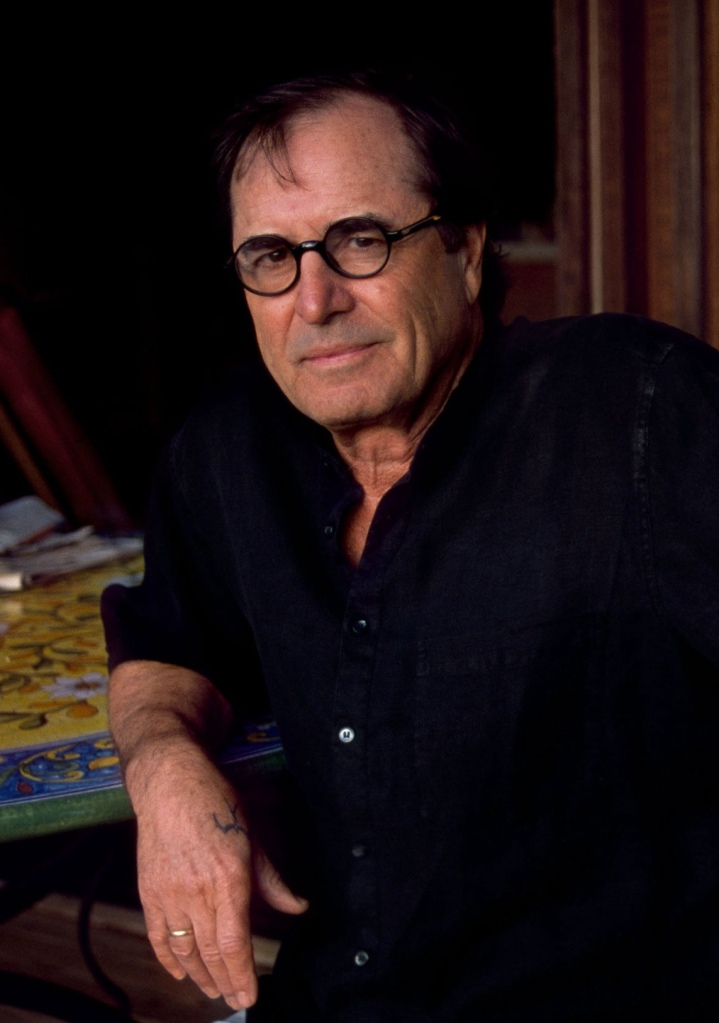
Paul Theroux (“The world’s most perceptive travel writer”—Daily Mail) is the author of many highly acclaimed works of fiction and nonfiction, including The Great Railway Bazaar (1975), The Mosquito Coast (1981), Riding the Iron Rooster (1983), and Mr. Bones: Twenty Stories (2014). In 2015, Paul Theroux was awarded a Royal Medal from the Royal Geographical Society for “the encouragement of geographical discovery through travel writing.” This award, approved by the Queen, is the highest award attainable for a traveler, and Theroux joins the ranks of recipients that include Sir Edmund Hillary, Admiral Richard Byrd, and Dr. Thor Heyerdahl. His other awards include the American Academy and Institute of Arts & Letters Award for literature, the Whitbread Prize for his novel Picture Palace, and the James Tait Black Award for The Mosquito Coast. His travelogue, The Old Patagonian Express: By Train through the Americas, and The Mosquito Coast were both nominated for the American Book Award. His novels Saint Jack, The Mosquito Coast, Doctor Slaughter, and Half Moon Street have been made into films, and his short story collection London Embassy was adapted for a British mini-series in 1987. Theroux holds honorary doctorates from three American universities and remains a highly sought-after speaker nationwide. His website is here.

George Salis is the author of Sea Above, Sun Below. His fiction is featured in The Dark, Black Dandy, Zizzle Literary Magazine, House of Zolo, Three Crows Magazine, and elsewhere. His criticism has appeared in Isacoustic, Atticus Review, and The Tishman Review, and his science article on the mechanics of natural evil was featured in Skeptic. He is currently working on an encyclopedic novel titled Morphological Echoes. He has taught in Bulgaria, China, and Poland. He’s the winner of the Tom La Farge Award for Innovative Writing. Find him on Facebook, Goodreads, Instagram, Twitter, and at www.GeorgeSalis.com.



Very refreshing.
LikeLike
The white racist and homophobic Americans are basically an extinct species. The really nasty, unpleasant people in the US today are affluent leftists. Not serious (and funny) leftists of the Jimmy Dore variety, but the self-righteous neo-Puritans who now like the MIC, CIA FBI and the neoliberal wars because they’re opposed to Trump. It’s still best to stay away from the US to avoid all the stupid conflict.
LikeLike
Curri, your third “sentence” doesn’t seem to have a verb, and is otherwise just a jumble. Your first sentence suggests you’ve stayed too far away and for too long; the referenced “species’ is hardly extinct, comprising as it does half the country.
LikeLike